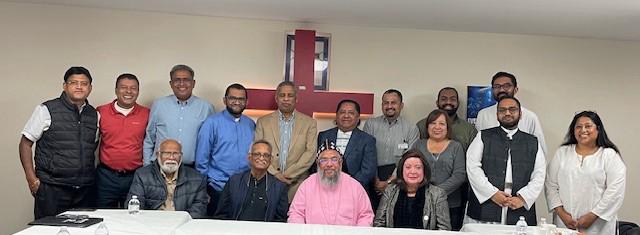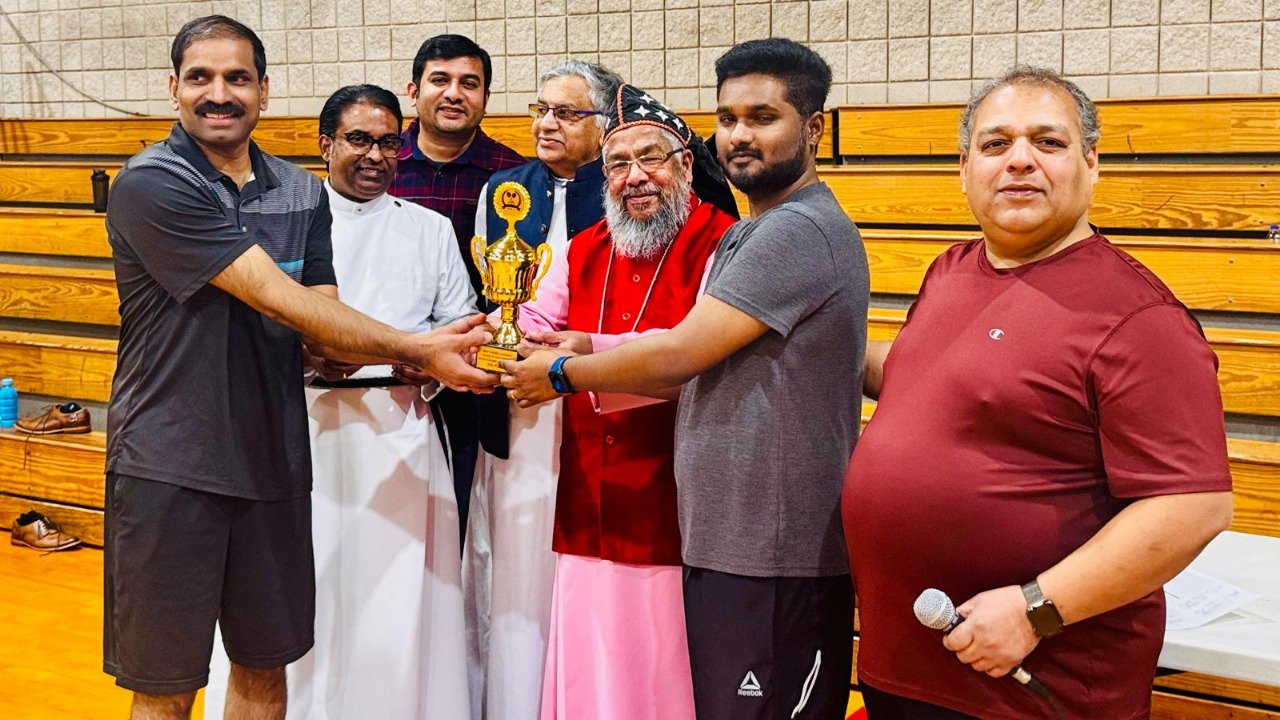The story of King Ahab, Queen Jezebel, Naboth, and the prophet Elijah
Rt. Rev. Dr. Abraham Mar Paulos Episcopa at Maramon 2025 (Summary of the speech)
The sermon is a deep spiritual reflection on fasting, transformation, power, and justice, based on 1 Kings 21:1-29, the story of King Ahab, Queen Jezebel, Naboth, and the prophet Elijah. Connects this ancient biblical narrative to contemporary social and political realities, urging believers to embrace fasting as a call to moral responsibility and social justice.
- Introduction: The Purpose of Fasting
- Fasting is not just about abstaining from food but about personal and societal transformation.
- True fasting should liberate us from attachments, injustices, and selfish desires, leading us to spiritual renewal and action.
- The upcoming season of fasting is described as a time for deep reflection on justice, morality, and faith.
- The Story of Naboth and Ahab (1 Kings 21:1-29)
The core biblical passage is the story of King Ahab's unjust seizure of Naboth's vineyard.
- The Greed of King Ahab
- Naboth owned a vineyard near King Ahab's palace.
- Ahab desired the vineyard to convert it into a vegetable garden.
- He offered Naboth either money or another piece of land, but Naboth refused because the land was his ancestral inheritance given by God.
- Queen Jezebel's Deception and Naboth's Murder
- When Naboth refused to sell his land, King Ahab became depressed, refused to eat, and lay in bed.
- Queen Jezebel mocked him for being weak and devised a deceitful plan:
- She wrote letters to the city elders, instructing them to declare a fast.
- Naboth was given a seat of honor, but false witnesses accused him of blasphemy and treason.
- He was stoned to death, and Ahab took possession of the vineyard.
- The Prophet Elijah Confronts Ahab
- Elijah, God's prophet, publicly condemned Ahab's actions.
- He warned that divine judgment would come upon Ahab's family:
- "Dogs will lick your blood where Naboth was killed."
- "Your dynasty will be wiped out."
- Ahab repented—tearing his clothes, wearing sackcloth, and fasting.
- Because of his repentance, God delayed the punishment until after Ahab's death.
- Connecting the Story to Modern Times
The speaker draws parallels between Ahab's rule and today's world, discussing political corruption, power abuse, and oppression.
- Corrupt Leadership and Misuse of Power
- Just as Ahab used his authority to seize Naboth's land, many modern leaders exploit power for personal gain.
- Governments, corporations, and politicians often prioritize their interests over the rights of low-income people.
- Jezebel's actions show how the ruling elite manipulated legal and religious systems to suppress truth and justice.
- Silencing the Truth and Controlling Society
- Jezebel used false accusations to eliminate Naboth.
- Similarly, in today's world, powerful forces use propaganda, media, and laws to silence dissenters.
- The speaker refers to:
- Fake news and misinformation campaigns to ruin reputations.
- Political and religious persecution against those who challenge authority.
- The growing trend of labeling critics as "traitors" or "anti-nationalists".
- The Role of the People: Blind Followers vs. Prophetic Voices
- The city elders followed Jezebel's orders without questioning—highlighting the danger of blind obedience.
- Many people passively support corrupt systems in modern society instead of questioning and resisting injustice.
- The speaker warns against becoming passive followers of authoritarian rule.
- Lessons from the Prophet Elijah: Speaking Truth to Power
The speaker highlights the role of Elijah, a courageous prophet who stood up against King Ahab despite the danger.
- Prophets vs. Kings: The Battle Between Truth and Power
- Elijah represented God's justice and fearlessly challenged the king's wrongdoing.
- This shows that even one voice can make a difference in confronting injustice.
- The sermon emphasizes that Christians today must act like Elijah against unethical practices in government, business, and society.
- Divine Judgment is Inevitable
- Even though Ahab repented, his family eventually faced destruction, proving that no injustice lasts forever.
- The speaker stresses: "Oppressive rulers may thrive temporarily, but God's justice will ultimately prevail."
- History shows that dictators and corrupt leaders always fall—whether Ahab, Pharaoh, Hitler, or modern leaders.
- The True Meaning of Fasting
The sermon concludes by redefining fasting as a commitment to justice and truth rather than a religious ritual.
- Fasting is Not Just About Food
- Many treat fasting as a personal religious practice, but it should be about transforming society.
- True fasting should lead to:
- Fighting injustice.
- Helping people experiencing poverty.
- Speaking out against corruption.
- Uplifting the oppressed.
- Fasting Must Lead to Action
- Fasting isn't very sensible if it does not change our attitudes and actions.
- The speaker challenges believers to stand up for righteousness and resist oppression, just like Elijah did.
- Conclusion: A Call to Moral Responsibility
- "Lent is not just about personal devotion—it is about transforming our communities."
- The story of Naboth reminds us that:
- Power must be held accountable.
- We must resist injustice, even when it is dangerous.
- Faith requires action, not just words.
- Fasting should not be passive—it should inspire us to fight for righteousness and against oppression.
The final prayer asks for God's guidance and strength to live as courageous followers of truth and justice.












